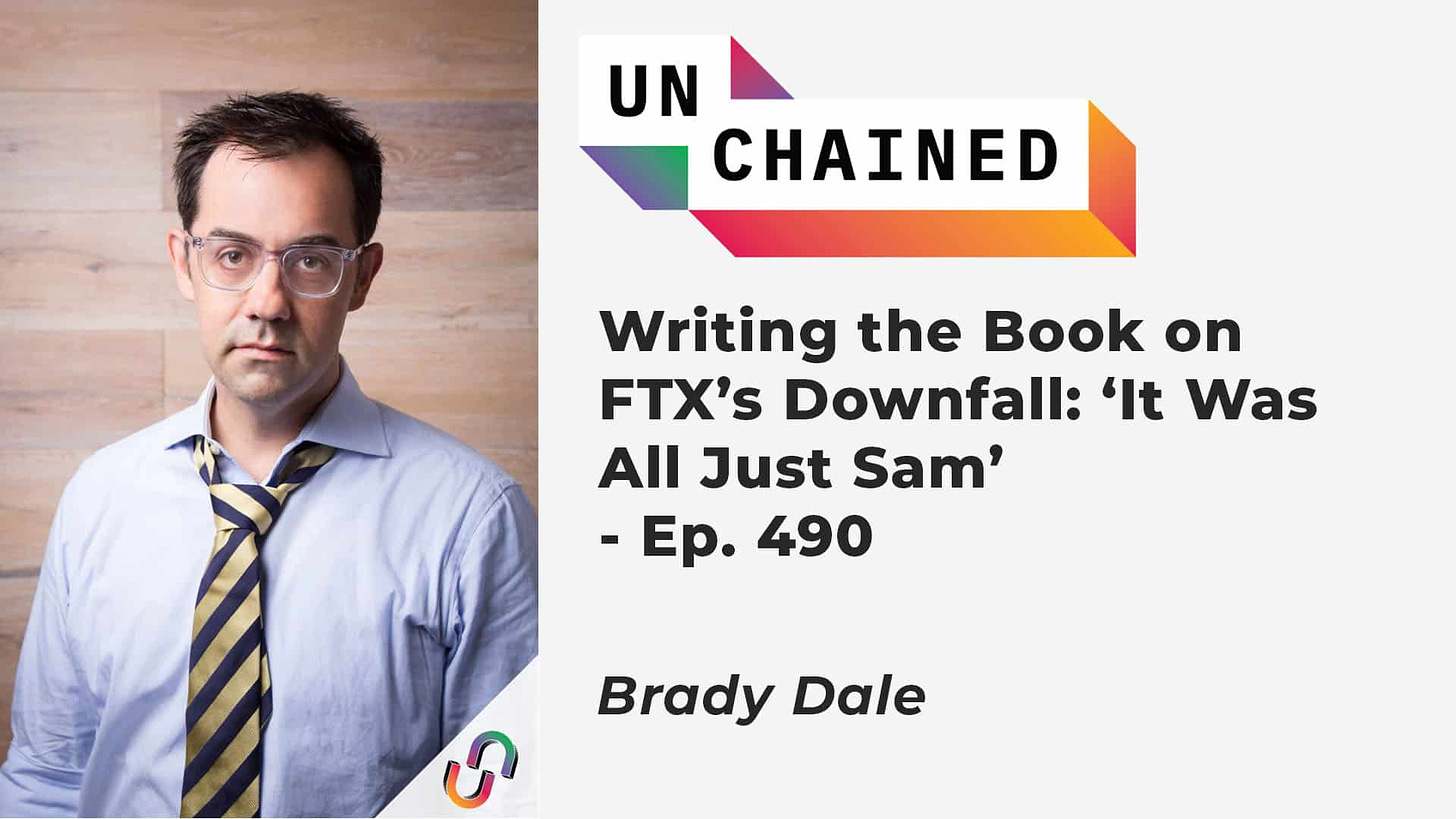Laura Shin:
Hi, everyone. Welcome to Unchained, your no-hype resource for all things crypto. I’m your host, Laura Shin, author of The Cryptopians. I started covering crypto seven years ago, and as a senior editor at Forbes, was the first mainstream media reporter to cover cryptocurrency full-time. This is the May 9th, 2023 episode of Unchained. If you're looking for more unchained, check out our website, unchainedcrypto.com, or follow us on Twitter, Instagram, TikTok, or YouTube.
Buy, trade, and spend crypto on the Crypto.com app. New users can enjoy zero credit card fees on crypto purchases in the first seven days. Download the Crypto.com app and get 25 dollars with the code Laura. Link in the description.
Today's guest is Brady Dale, writer and reporter at Axios, and author of SBF: How The FTX Bankruptcy Unwound Crypto's Very Bad Good Guy. Welcome, Brady.
Brady Dale:
Hey, Laura. Great to be here.
Laura Shin:
You've been a reporter covering Crypto full-time since 2017. How did you get into it and what had your background been before?
Brady Dale:
Immediately before, I was a General Tech reporter at The Observer, which published the New York Observer, which is how most people know it. Though I wasn't in the actual paper very often, but I was a general tech reporter there, and I've always gravitated towards kind of the weird stuff. And so I would... CoinDesk noticed me. I got hired by CoinDesk in 2017 and they noticed my ICO coverage 'cause I was doing that when that was kind of taking off in 2017. But actually the first, well, I did some other tiny sort of lame Bitcoin stories before that. But the first real... the first time I really dug into what blockchains were, I was very interested in Kindles and e-books. I was a big... I thought I think that was one of my favorite topics to write about. But one downside of e-books is you don't really own them. They're just licensed. Right? And so that means that you can't, for example, there's no secondary market for e-books, for example, because you just licensed them. And that is clearly a downside of e-books. And so I was like, "Oh, I wonder if there's any kind of technology that could solve that." And that's when I learned about the work Imogen Heap was doing at the time on her Mycelia project, which was sort of a secondary market for digital music. And I was just like, "Oh, that could be e-books too." So that's when I learned what a blockchain was and then kind of continued to explore it ever since then, and then found ICOs and then went to CoinDesk, etcetera.
Laura Shin:
That is such an interesting kind of early interest in crypto. It's definitely not the typical one. One other thing that I wanted to ask you about is you also have an environmental background. And I don't know if this happens to you, but when I often meet non-crypto people and they find out what I do, one of the first things they ask me is about the environmental impact of crypto. And they think it's all of crypto. I have to clarify things for them. But I was wondering what your take is on the environmental impact of proof of work?
Brady Dale:
Keep reading with a 7-day free trial
Subscribe to Unchained to keep reading this post and get 7 days of free access to the full post archives.




